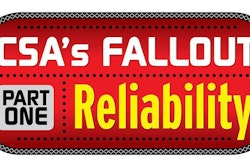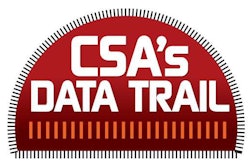At the Wednesday, Feb. 12, meeting of the CSA Subcommittee of the Motor Carrier Safety Advisory Committee to FMCSA, subcommittee chair Dave Parker turned members toward discussion of what they might take up in their last meeting for the foreseeable future. That meeting will take place April 29-30, and will be devoted to offering recommendations on Compliance, Safety, Accountability program revisions to the full MCSAC to consider during its May meeting.
After that, “we’ll curl up into a cocoon until we’re called upon next,” said Parker.
The timing of Parker’s announcement added urgency to the final hour-and-a-half discussion at the end of yesterday’s meeting. As CSA Subcommittee members discussed priorities for that last (for now) April meeting, Bus-company DATTCO’s Rudy Supina considered the difficulty of prioritizing discussion items given all that’s coming down the pike relative to CSA, including the “the DOT Inspector General report [on CSA],” among other things.
Such as: FMCSA reported that results of its Crash Weighting Research Plan study could be expected “by the end of the month” of February, said Associate Administrator for Enforcement Bill Quade. The crash-weighting study is a look into whether police reports and other available crash data could deliver detail enough to develop a crash-weighting system that takes more than just crash incidence into account in CSA’s metrics.
The agency’s Safety Fitness Determination Notice of Proposed Rulemaking, on schedule to go to the White House Office of Management and Budget in the Spring, will open up the floodgates on comment from around the industry when let out of the bag. The rule “would allow us to use this roadside inspection data to do” safety ratings, said FMCSA Associate Administrator for Policy Larry Minor.
Considering that intervening events could change the agenda, subcommittee members charted the following potential discussion items for the next meeting:
**The Driver Fitness and Drug and Alcohol BASICs — correlation to crash risk and updates on improvement. Though other analysis has routinely shown little correlation between these BASICs and crash involvement, FMCSA’s Bill Quade stressed that among the for-hire carriers in combination-unit truck-tractors, all BASIC categories are showing greater crash likelihood for carriers with scores above intervention thresholds. See further reporting on FMCSA CSA effectiveness analysis, with some of Overdrive‘s own analysis, here.








